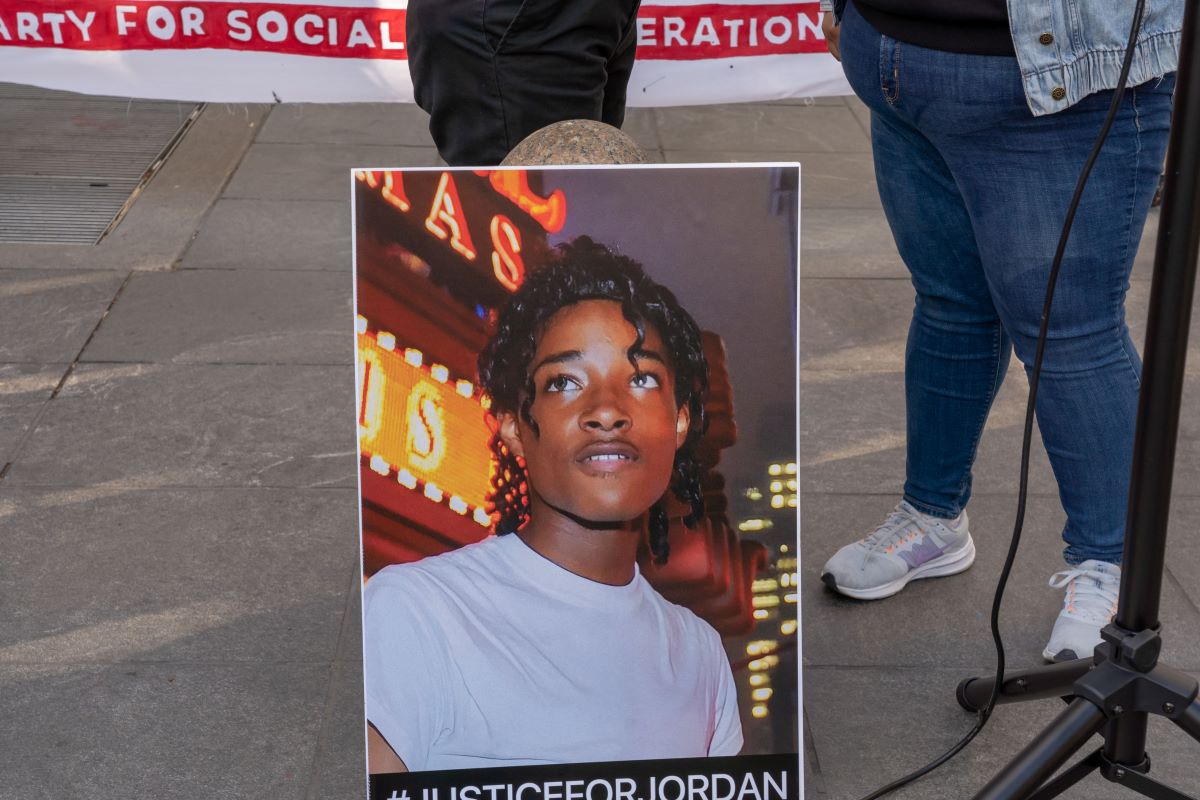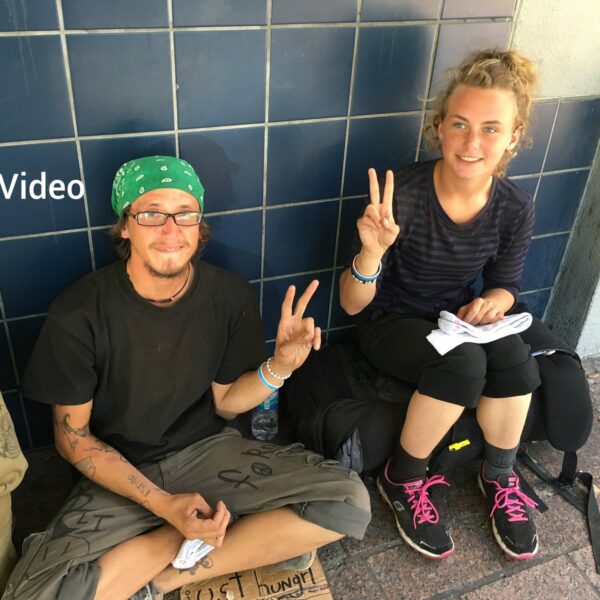There is a reason we refer to members of the unhoused population as “Invisible People.”
Homelessness has existed in vast quantities for centuries in the United States of America. To instill a false sense of security in America’s laboring class, people in positions of power have found crafty ways to suppress the narrative whenever possible and control the narrative whenever word gets out. This is why you never hear about homelessness from the very people who are living through the reality of it. Their stories, when told, are shown through someone else’s lens.
While the general public is led to believe that homelessness results from individual decisions, studies prove it results from a system failure. The law is an extended arm of that faulty system that perpetuates homelessness.
Anti-homeless legislation and criminalization can fuel hatred, even death. On May 1, 2023, one tragic homeless death did garner nationwide attention. It was the preventable murder of unsheltered street performer Jordan Neely, who was strangled to death in a subway station after loudly expressing his hunger, exhaustion, and lack of motivation to live.
Some mainstream media members initially presented Mr. Neely’s death as self-defense, given that Neely made statements suggesting violence. However, it should be duly noted that those statements were not followed by actual physical violence, and the now-deceased homeless man was already subdued when he was killed.
The question then becomes, if homelessness wasn’t so heavily criminalized, would the people riding that train have received Neely’s threats as a plea for help rather than a ploy for violence?
We spoke with criminalization experts to get the answer to that very question. Here is what they had to say.
Former Executive Director of The U.S. Interagency Council on Homelessness Barbara Poppe Says Criminalization Encourages this Type of Violence
In a brief one-on-one with Invisible People, Barbara J. Poppe said, “I am outraged by his death, but I am not shocked by the attack. The media and many elected leaders have been encouraging violence against homeless people through their mean-spirited and counterproductive calls for increased law enforcement rather than calling for solutions that are both humane and effective. I hope that this can be a wake-up call and we shift the public narrative to recognize these are human beings who deserve our compassion.”
Decriminalization Director for the National Homelessness Law Center, Will Knight, Described the Role of Criminalization in this Incident as ‘Huge’
“Homeless criminalization played a huge role,” he explained in an exclusive interview with Invisible People. “Fear of crime politics, just the lowest common denominator, has a massive impact on how the community views and interacts with the unsheltered population. Irresponsible reporting makes people terrified of anyone who doesn’t look like they’re living life the same way they are.”
“When you talk about Jordan Neely, you’re dealing with a triple whammy. First, because he was a black man and black men are unjustly placed in a culturally disposable position in America. He was also suffering from mental health issues. Mental illness and the people suffering from it are over-criminalized, as well. Then, of course, criminalization of unsheltered homeless people has created a general sense of unease.”
“This is going to increase over the next year and a half,” Knight continued. “You can already see politicians using it as a scapegoat or a bogeyman to get people to come out the polls and vote for whatever draconian, unnecessary criminalization measures they’ve put on the table. Young children are also incredibly powerless and voiceless, so it’s easy to instill these negative impressions of unsheltered people into their young minds.”
When asked to reflect on the role criminalization might play in the recent, sharp upturn of homeless deaths, Knight said the Neely tragedy is one of too many examples.
“Do you remember there was a story about a homeless person who had gotten bear sprayed by a city official? Initial reporting on the incident strongly suggested that the victim (the homeless man) was a violent drug addict terrorizing people on the streets. Nobody bothered digging deeper for the truth.”
“As it turns out, what actually happened was the person (the city official) who was supposedly attacked was the aggressor, and he had been taking cans of bear spray and spraying sleeping or resting unsheltered people regularly. Day after day, the individual at the center of the story saw this happen and as it was about to happen to him, he reacted in self-defense.”
“The unsheltered homeless person was the one trying to defend himself, but the story was initially told from the angle where the homeless person was both crazy and violent, not to mention the attacker. We need to stop demonizing the unsheltered homeless population and help them instead,” said Knight.
These Sentiments are Echoed Online
A popular video posted to Twitter by Democracy Now! features the following quote from reporter Jawanza James Williams:
“Since 2022, over 815 people experiencing homelessness in NY have died in public spaces. This is a structural phenomenon. [….] What we need to see is not a mobilization of violence, but a mobilization of care in our subways.”
That quote, reposted along with the original reporting video by Housing Not Handcuffs, reflects other experts’ general sentiments.
It’s Time to Change the Narrative. Talk to Your Local Representatives About Non-Punitive Approaches to Homelessness.
Did you know that every time police presence is apparent at a homeless encampment, the general public assumes there has been criminal activity there?
Did you know the false perception of criminality within the homeless community influences voters to support anti-homeless legislation?
In turn, did you know that anti-homeless legislation perpetuates the vicious cycle of homelessness rather than solving it?
How many more deaths must be endured before we finally take action? Please talk to your local legislators about implementing non-punitive approaches to homelessness. People’s lives depend on it.












